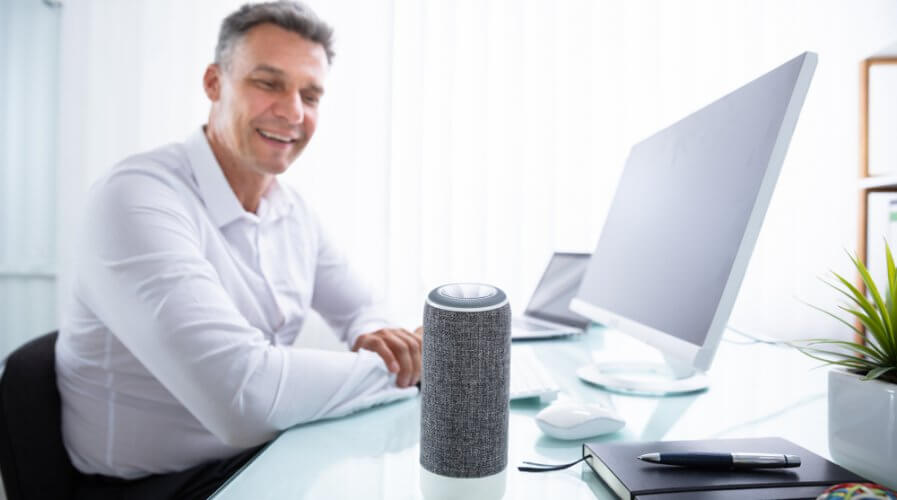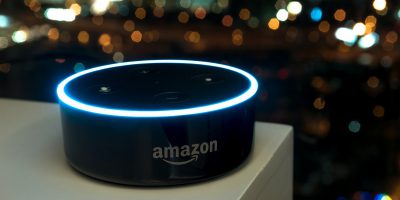
Voice assistants are coming. Source: Shutterstock
Do customers now expect your brand to have a voice?
VOICE ASSISTANTS are picking up and for the first time in the digital age, it seems as though customers expect your brand and business to have a voice.
In the near future, voice interfaces are going to be ubiquitous and businesses will have to build voice-enabled experiences for their users.
To better understand this trend, Tech Wire Asia spoke to Amazon Alexa Evangelist Sohan Maheshwar who was recently in Malaysia for the NextBigTech Asia conference.
“Voice is the next major disruption in computing. We’ve seen paradigm shifts every 10 years or so – from the desktop era to the web to the age of mobile phones. Now we are in the age of voice user interfaces,” said Maheshwar.
Experts believe that conversational interfaces will disrupt the customer service model very sooner. In fact, in the near future, customer service agents could be assisted by Alexa and similar devices to help them cope with the large number of “similar” requests they receive — which can be automated.
Answers can be personalized for users via APIs as well, making the responses both instant as well as personal.
“Don’t be surprised if you soon ask an Alexa device for help at the lobby of a hotel. As a matter of fact, a hotel in India has already implemented Alexa to cater to the needs of their guests for room service,” claimed Maheshwar.
Soon, organizations will have to think about the journey they take their customers on and the value they provide to them. Voice, growing the way it is, can help improve that journey significantly — and quite effortlessly.
For instance, Tide – the laundry detergent brand, wanted to engage with their customers via voice. They built a voice experience that helped users with tips on stain removal. A user could say something like “Alexa, ask Tide how I can clean a wine stain”. This helped build affinity with current customers by providing useful tips related to cleaning stains.
Similarly, Dominos built an experience for its users to guide them while ordering pizza. Users can use the Amazon voice assistant to ask for their favorite type of pizza and have it delivered to their home in no time.
“However, we believe we are only scratching the surface when it comes to creating voice experiences. Soon, voice will the primary user interface,” expressed the Alexa Evangelist.
Industry analysts believe that in the near future, customers will interact with voice interfaces not only at home but also at their workplace, in supermarkets, in their car and even at schools.
Thanks to the advancements in big data and machine learning, Natural Language Processing is improving exponentially and the conversations customers have with voice assistants will be far more natural and human-like in the coming years.
“When we moved from the web era to smartphone, it was very difficult to go to a website on a phone. Websites were not mobile-friendly and you had to zoom in many times to view a webpage. People solved that problem by thinking mobile-first and came up with responsive design. We are at a similar stage with voice,” concluded Maheshwar, who believes that the future is going to be voice-first and very exciting.
READ MORE
- The criticality of endpoint management in cybersecurity and operations
- Ethical AI: The renewed importance of safeguarding data and customer privacy in Generative AI applications
- How Japan balances AI-driven opportunities with cybersecurity needs
- Deploying SASE: Benchmarking your approach
- Insurance everywhere all at once: the digital transformation of the APAC insurance industry




